Best States for Low Taxes: 50 States Ranked for Taxes, 2019
We rated every state for taxes based on state income taxes, local sales taxes and property taxes. Find out where your state ranks.
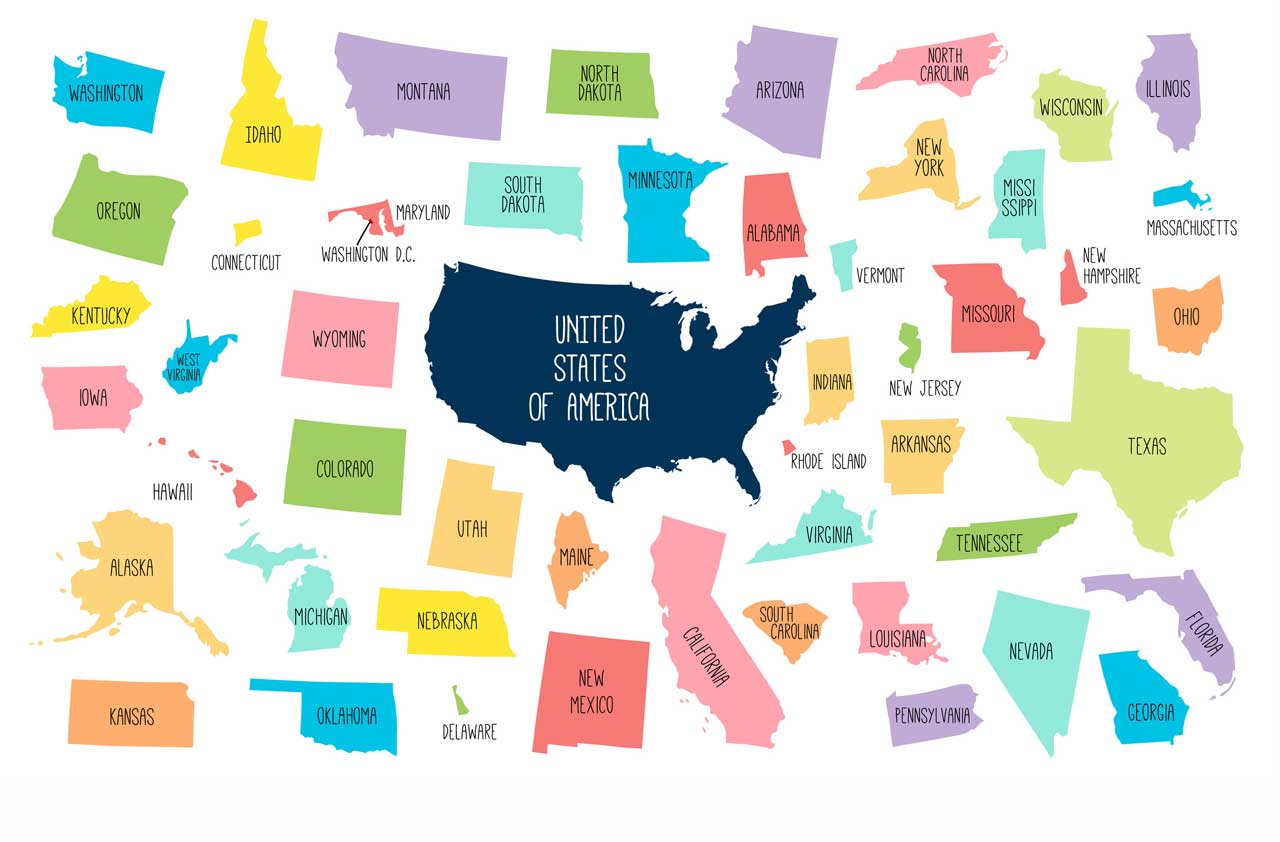
Profit and prosper with the best of Kiplinger's advice on investing, taxes, retirement, personal finance and much more. Delivered daily. Enter your email in the box and click Sign Me Up.
You are now subscribed
Your newsletter sign-up was successful
Want to add more newsletters?

Delivered daily
Kiplinger Today
Profit and prosper with the best of Kiplinger's advice on investing, taxes, retirement, personal finance and much more delivered daily. Smart money moves start here.

Sent five days a week
Kiplinger A Step Ahead
Get practical help to make better financial decisions in your everyday life, from spending to savings on top deals.

Delivered daily
Kiplinger Closing Bell
Get today's biggest financial and investing headlines delivered to your inbox every day the U.S. stock market is open.

Sent twice a week
Kiplinger Adviser Intel
Financial pros across the country share best practices and fresh tactics to preserve and grow your wealth.

Delivered weekly
Kiplinger Tax Tips
Trim your federal and state tax bills with practical tax-planning and tax-cutting strategies.

Sent twice a week
Kiplinger Retirement Tips
Your twice-a-week guide to planning and enjoying a financially secure and richly rewarding retirement

Sent bimonthly.
Kiplinger Adviser Angle
Insights for advisers, wealth managers and other financial professionals.

Sent twice a week
Kiplinger Investing Weekly
Your twice-a-week roundup of promising stocks, funds, companies and industries you should consider, ones you should avoid, and why.

Sent weekly for six weeks
Kiplinger Invest for Retirement
Your step-by-step six-part series on how to invest for retirement, from devising a successful strategy to exactly which investments to choose.
No two states are alike when it comes to taxes. They all have their own rules, rates and special tax breaks. As a result, your overall state and local tax burden in one state can be thousands of dollars more (or less) than in another.
What about your state? Are you in a high-tax state or a low-tax state (or somewhere in between)? That can be hard to determine. There are so many state and local taxes to worry about, and they're constantly changing. However, we've made it easy. We estimated the tax burden in each state for a hypothetical married couple with a combined earned income of $150,000, $10,000 in dividend income, two dependents and a $400,000 home (with a mortgage). Then we ranked each state according to the total state and local tax bill in each location. Check out the alphabetical list below to see where your state fits in … you might be surprised by what you find!
States are listed alphabetically. Details on tax data sources and our ranking methodology can be found in the last slide.

Alabama
- Our ranking: Tax-friendly
- State income tax: 2% (on up to $1,000 of taxable income for married joint filers and up to $500 for all others) — 5% (on more than $6,000 of taxable income for married joint filers and more than $3,000 for all others)
- Average property tax: $432 in taxes per $100,000 of assessed home value
- Average state and local sales tax: 9.16%
- Gas taxes and fees: $0.2721 per gallon
It doesn’t take much income to find yourself in Alabama’s highest tax bracket, though the Yellowhammer State does allow you to deduct your federal income taxes (it’s one of just a handful of states with this break). Some counties and cities charge an “municipal occupational tax” of 0.5%-2% on income; the average levy across the state is 0.5%, according to the Tax Foundation.
Property taxes are the second-lowest in the country, but sales taxes take a bite — and the full rate is levied on food.

Alaska
- Our ranking: Most tax-friendly
- State income tax: None
- Average property tax: $1,234 in taxes per $100,000 of assessed home value
- Average state and local sales tax: 1.76%
- Gas taxes and fees: $0.1432 per gallon
Alaska gives each legal resident who has lived in the state for a full year an annual “Permanent Fund Dividend.” But the dividend has been shrinking in recent years, reflecting lower oil prices and a drop in production. For 2019, each legal resident will receive $1,606, down from a peak of $2,072 in 2015.
Gas taxes in the Last Frontier are the lowest in the U.S., and Alaskans pay no state income taxes or state sales taxes. While municipalities – generally those without real estate taxes – impose local sales taxes as high as 7.5%, the average sales tax is 1.76%, according to the Tax Foundation. Anchorage, Alaska’s largest city, has no sales tax.

Arizona
- Our ranking: Most tax-friendly
- State income tax: 2.59% (on up to $21,202 of taxable income for married joint filers and up to $10,602 for all others) — 4.54% (on more than $317,990 of taxable income for married joint filers and more than $158,996 for all others)
- Average property tax: $754 in taxes per $100,000 of assessed home value
- Average state and local sales tax: 8.39%
- Gas taxes and fees: $0.1900 per gallon
Arizona’s top income tax rate of 4.54% doesn’t kick in until taxable income exceeds $158,996 for single filers or $317,990 for married couples filing jointly.
Residents pay an average of $754 in taxes per $100,000 of assessed home value, low for the U.S. And at 19 cents per gallon, state gas taxes are well below the national average of 34 cents per gallon.
Like most states, the Grand Canyon State excludes prescription drugs and food for home consumption from state sales taxes. However, all 15 counties levy additional taxes, as do many municipalities, and some jurisdictions extend their taxes to groceries.

Arkansas
- Our ranking: Not tax-friendly
- State income tax: 0.9% (on up to $4,499 of taxable income) — 6.9% (on more than $79,301)
- Average property tax: $658 in taxes per $100,000 of assessed home value
- Average state and local sales tax: 9.47%
- Gas taxes and fees: $0.2480 per gallon
Property taxes are low in the Natural State, but sales taxes are among the highest in the country — even groceries are taxed (albeit at a lower rate). Income tax is particularly complicated in Arkansas, as the state uses multiple rate schedules that give it 16 different tax brackets in practice. Notably, service pay for active-duty members of the armed forces is completely exempt from income tax.

California
- Our ranking: Tax-friendly
- State income tax: 1% (on income less than $8,544/individual, $17,088/joint) — 13.3% (on income more than $1 million/individual, $1,145,960/joint)
- Average property tax: $841 in taxes per $100,000 of assessed home value
- Average state and local sales tax: 8.66%
- Gas taxes and fees: $0.6205 per gallon
While some California residents will see their income taxed at the country’s highest rate, 13.3%, which hits taxable income over $1 million for singles and $1,145,960 for married joint filers, for more modest incomes, the tax bite is far less harsh
The Golden State has the highest statewide sales tax, at 7.25%, but on average, municipalities don't add all that much, with the average state and local combined rate at 8.66%, according to the Tax Foundation. In Los Angeles County, though, dozens of cities have double-digit sales taxes.
Californians have lower property-tax rates than residents of other coastal states. However, in a state with some of the highest real estate prices in the U.S., bills can still be pricey. In the Bay Area and other parts of the state where an average home costs upwards of $1 million, the federal $10,000 cap on state and local tax deductions will increase the overall impact of property taxes.

Colorado
- Our ranking: Tax-friendly
- State income tax: Flat 4.63%
- Average property tax: $607 in taxes per $100,000 of assessed home value
- Average state and local sales tax: 7.63%
- Gas taxes and fees: $0.2200 per gallon
The Centennial State has a flat tax: If you have federal taxable income, the rate is 4.63%. Property taxes are quite low, but sales taxes take a bite. Colorado has a legal cannabis market; the taxes on marijuana include a 15% excise tax, a 15% "retail marijuana sales tax," plus regular state and local sales taxes.

Connecticut
- Our ranking: Least tax-friendly
- State income tax: 3% (on up to $20,000 of taxable income for married joint filers and up to $10,000 for those filing individually) — 6.99% (on the amount over $1 million for married joint filers and over $500,000 for those filing individually)
- Average property tax: $2,114 in taxes per $100,000 of assessed home value
- Average state and local sales tax: 6.35%
- Gas taxes and fees: $0.3931 per gallon
About the only bright spot in Connecticut’s tax picture is that localities can’t add to The Constitution State’s 6.35% sales tax. Real estate taxes are the fourth-highest in the country and the state has not only a gift tax, but a luxury tax. Plus, annual car taxes are steep.
The Nutmeg State is one of Kiplinger’s top ten least tax-friendly states. The $10,000 cap on the federal tax deduction for state and local taxes hits residents in high-income areas, such as Fairfield County, who pay more than $10,000 in property taxes — their federal tax deductions for state and local taxes will be curtailed.

Delaware
- Our ranking: Most tax-friendly
- State income tax: 2.2% (on taxable income from $2,001 to $5,000) — 6.6% (on taxable income above $60,000)
- Average property tax: $604 in taxes per $100,000 of assessed home value
- Average state and local sales tax: 0%
- Gas taxes and fees: $0.2300 per gallon
The First State is a standout among its East Coast neighbors, with zero sales tax and and low property taxes. Income taxes escalate quickly, though, with the top rate of 6.6% hitting taxable income over $60,000 (for both single and joint filers), and the city of Wilmington imposing its own wage tax of 1%. Delaware is one of Kiplinger’s top ten most tax-friendly states.
Little Delaware pulls off this low-tax trick by being a very friendly place for businesses to incorporate, and then collecting fees and taxes from these absentee businesses, whose real operations are elsewhere.
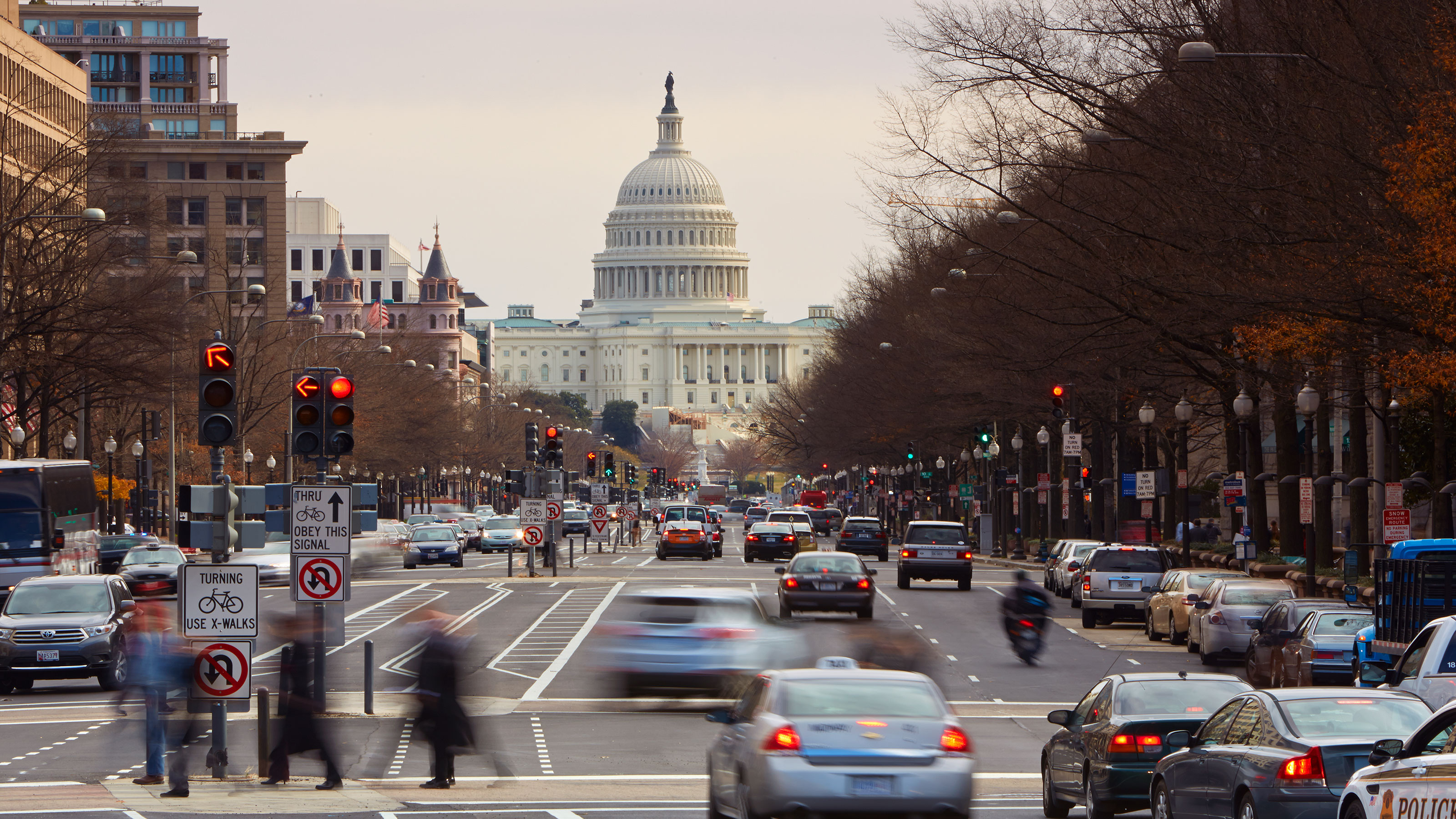
District of Columbia
- Our ranking: Not tax-friendly
- State income tax: 4% (on taxable income up to $10,000) — 8.95% (on taxable income above $1,000,000)
- Average property tax: $603 in taxes per $100,000 of assessed home value
- Average state and local sales tax: 5.75%
- Gas taxes and fees: $0.2300 cents per gallon
Living in the Nation’s Capital can be expensive. Though property and sales taxes are unexceptional, the District of Columbia takes huge bite of income. Taxable income over $40,000 gets hit at a 6.5% rate (the top rate of 8.95% is reserved for taxable income over $1,000,000).

Florida
- Our ranking: Most tax-friendly
- State income tax: None
- Average property tax: $1,041 in taxes per $100,000 of assessed home value
- Average state and local sales tax: 7.05%
- Gas taxes and fees: $0.4199 per gallon (varies by county)
The Sunshine State is well known for its absence of a state income tax, and its property taxes are below the midpoint for the U.S. Florida is one of Kiplinger’s top ten most tax-friendly states
Notably, Florida is one of only two states to exempt cigars from all taxation, a reflection of its long history as a cigar-manufacturing location.

Georgia
- Our ranking: Mixed tax picture
- State income tax: 1% (on the first $1,000 of taxable net income for married couples filing jointly; on the first $750 for individual filers; and on the first $500 for married couples filing separately) — 6% (on taxable income over $10,000 for married couples filing jointly; on taxable income over $7,000 for individual filers; and on taxable income over $5,000 for married couples filing separately)
- Average property tax: $1,000 in taxes per $100,000 of assessed home value
- Average state and local sales tax: 7.23% (groceries taxable by localities)
- Gas taxes and fees: $0.3515 per gallon
Georgia’s tax brackets mean that many taxpayers will find themselves paying the top marginal rate, which kicks in at just $10,000 of taxable income for married couples filing jointly or $7,000 for individual filers. However, the rates are dropping. For 2019, the rate is 5.75%. A further reduction to 5.5% would require a joint resolution by Georgia lawmakers and the governor during the 2020 legislative session.
The Peach State’s sales taxes lean high, and in some areas, groceries are taxed as well. Property taxes are modest.

Hawaii
- Our ranking: Mixed tax picture
- State income tax: 1.4% (on taxable income up to $4,800 for married couples filing jointly; on up to $2,400 for married couples filing separately and individual filers) — 8.25% (on taxable income over $48,000 for married couples filing jointly and surviving spouses; on over $96,000 for married couples filing separately and individual filers)
- Average property tax: $304 in taxes per $100,000 of assessed home value
- Average state and local sales tax: 4.41% (but applied to virtually all transactions)
- Gas taxes and fees: $0.4841 cents per gallon (varies by county)
The Aloha State is known for its high cost of living. Some of that comes from taxes: the top tax bracket is an eye-popping 11% (applied to taxable income over $400,000). Also, don’t be fooled by Hawaii’s 4.35% average sales tax rate. Since it’s due on virtually all transactions, the pocketbook effect is severe.
A ray of sunshine: Property tax rates are the lowest in the U.S.

Idaho
- Our ranking: Mixed tax picture
- State income tax: 1.125% (on taxable income up to $3,008 for married joint filers and up to $1,504 for individual filers) — 6.925% (on taxable income of $22,558 or more for married joint filers and $11,279 or more for individual filers)
- Average property tax: $796 in taxes per $100,000 of assessed home value
- Average state and local sales tax: 6.03% (groceries are taxed)
- Gas taxes and fees: $0.3300 per gallon
Idaho took steps to head off an effective state tax increase from the new federal tax law. Among the steps: Increasing the state standard deduction, introducing a a new $130 per child tax credit, and lowering tax rates a hair. Even so, Idaho’s top tax rate of 6.925% kicks in at a fairly low bracket ($22,558 for married joint filers), making its income-tax hit feel more like that of a a coastal state.
On the other hand, property taxes are low, sales tax modest and the Gem State does not have an inheritance tax or estate tax.

Illinois
- Our ranking: Least tax-friendly
- State income tax: Flat 4.95%
- Average property tax: $2,408 in taxes per $100,000 of assessed home value
- Average state and local sales tax: 8.78% (groceries are taxed)
- Gas taxes and fees: $0.5387 per gallon (varies by county)
Illinois’ economic woes are one reason why the Prairie State tops our list of the least tax-friendly states in the country. The state ranks #50 in the latest ranking of states’ fiscal health by the Mercatus Center at George Mason University, and residents are paying the price with higher taxes.
The state's 4.95% flat income tax rate actually isn't that high when compared to other states, but other taxes are a doozy. For example, property taxes in Illinois are the second-highest in the nation. On a $400,000 home in the state, the average annual property tax bill would be an eye-popping $9,634.
Sales taxes are high, too. In some municipalities, combined state and local sales taxes exceed 10%. Most states exempt food and drugs from their sales tax, but that's not the case in Illinois.

Indiana
- Our ranking: Mixed tax picture
- State income tax: Flat 3.23%
- Average property tax: $907 in taxes per $100,000 of assessed home value
- State sales tax: 7%
- Gas taxes and fees: $0.4662 cents per gallon
The Hoosier State dropped its flat income tax a smidge in 2017, from 3.3% to 3.23%, but many counties in Indiana also impose their own income taxes, with an average levy of 1.56%, according to the Tax Foundation. The state's general sales tax is high, though municipalities don’t get to add to it.

Iowa
- Our ranking: Least tax-friendly
- State income tax: 0.36% (on up to $1,598 of taxable income) — 8.98% (on taxable income over $71,910); in 2019, 0.33% (on up to $1,638 of taxable income) — 8.53% (on taxable income over $73,710)
- Average property tax: $1,678 in taxes per $100,000 of assessed home value
- Average state and local sales tax: 6.82%
- Gas taxes and fees: 31 cents per gallon
Which do you think is higher in Iowa: the corn or taxes? It might be taxes, thanks to above average income and property taxes in the state. One reason why income taxes are on the high end in the state is because over 200 school districts and Appanoose County add their own income taxes on top of the state-level tax. The average property tax rate in the Hawkeye State is the 12th-highest in the nation. For a $400,000 home in the state, the owners can expect to pay about $6,711 per year in property taxes. That certainly doesn’t help homeowners in Iowa.
Income tax rates have been lowered for 2019, and will go down further in 2023, assuming state revenues hold up.
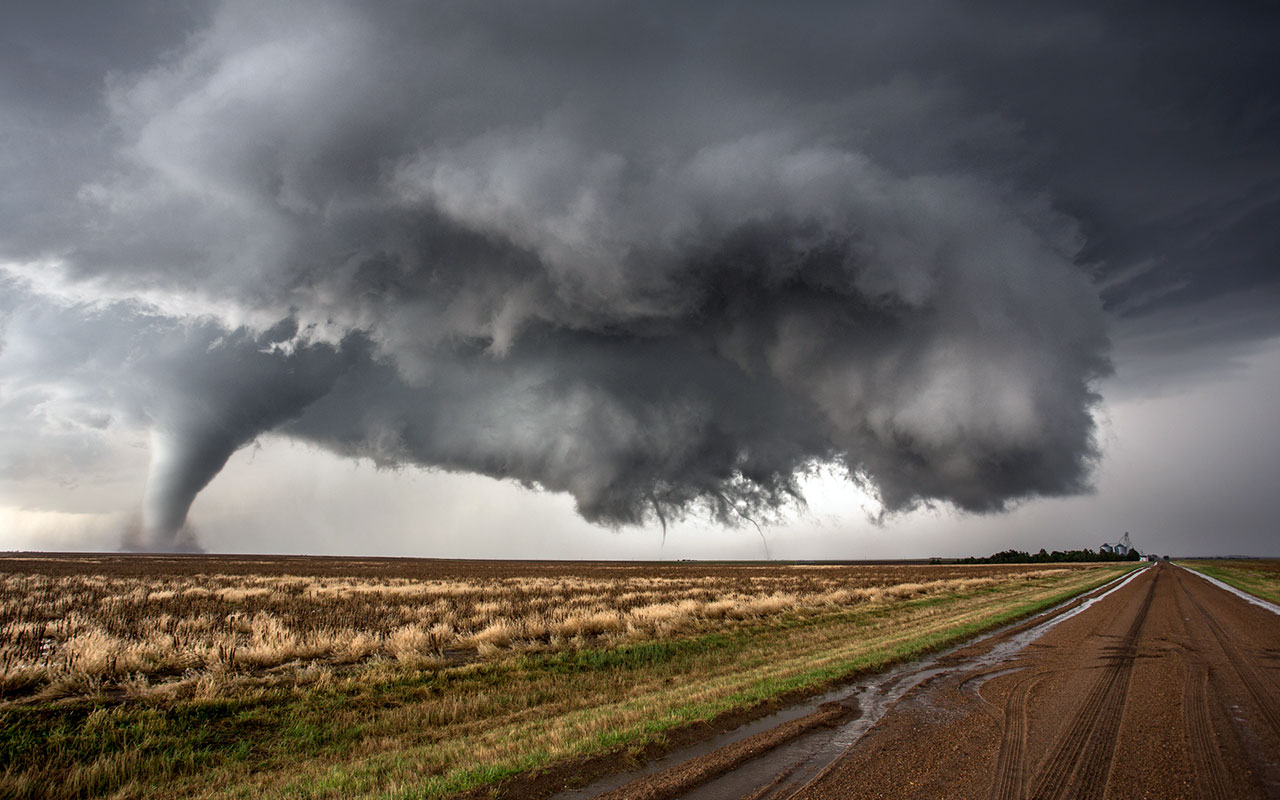
Kansas
- Our ranking: Least tax-friendly
- State income tax: 3.1% (on $2,500 or less of taxable income for single filers and $5,000 or less for joint filers) — 5.7% (on more than $30,000 of taxable income for single filers and more than $60,000 for joint filers)
- Average property tax: $1,491 in taxes per $100,000 of assessed home value
- Average state and local sales tax: 8.68%
- Gas taxes and fees: $0.2403 per gallon (varies by county)
Kansas has seen a lot of tax drama in the past decade as it implemented, then ultimately rejected, a series of tax cuts promoted by then-Governor Sam Brownback. Individual income tax rates went up in 2017, as well as business taxes. Residents who earn interest and dividends may see those taxed by school districts.
Sales taxes are the 9th highest in the country. (and are applied to groceries as well).

Kentucky
- Our ranking: Mixed tax picture
- State income tax: Flat 5%
- State sales tax: 6%
- Average property tax: $925 in taxes per $100,000 of assessed home value
- Gas taxes and fees: 26 cents per gallon
Kentucky changed its tax structure substantially in 2018, moving to a 5% flat tax (to which localities can add, an average of 2.08%, according to the Tax Foundation). Deductions for health insurance premiums, long-term care insurance coverage, and medical expenses were eliminated. More items are now subject to the state’s 6% sales tax, too, including club fees, pet care services, and landscaping services.
However, the Bluegrass State still prevents localities from adding to that sales tax, and the property tax burden is light.

Louisiana
- Our ranking: Most tax-friendly
- State income tax: 2% (on $12,500 or less of taxable income for individuals, $25,000 for joint filers) — 6% (on more than $50,000 of taxable income; $100,000 for joint filers)
- Average property tax: $555 in taxes per $100,000 of assessed home value
- Average state and local sales tax: 9.45%
- Gas taxes and fees: 20 cents per gallon
The Pelican State is homeowner-friendly, with property taxes among the lowest in the country, helping make it one of Kiplinger’s top ten most tax-friendly states. The average tax bill is under $1,000, in fact. But, sales taxes are high — among the highest in the country, in fact, and the local portion of these is due on groceries and prescription drugs.
Louisiana is one of a handful of states that allow residents to deduct their federal income taxes.

Maine
- Our ranking: Not tax-friendly
- State income tax: 5.8% (on taxable income less than $21,450 for single filers; less than $42,900 for joint filers) — 7.15% (on taxable income of $50,750 or more for single filers, $101,550 for joint filers)
- Average property tax: $1,424 in taxes per $100,000 of assessed home value
- State sales tax: 5.5%
- Gas taxes and fees: $0.3001 per gallon
Maine’s lowest income tax rate of 5.8% (on taxable income less than $21,450 for single filers) is higher than some other states’ maximum rate. The state tries to make up for that by charging a relatively low sales tax (and not letting municipalities add to it).
Though Maine does have an estate tax, its exclusion amount is quite high: $5.7 million for 2019.

Maryland
- Our ranking: Not tax-friendly
- State income tax: 2% (on less than $1,000 of taxable income) — 5.75% (on more than $250,000 of taxable income for single filers; more than $300,000 for joint filers)
- Average property tax: $1,125 in taxes per $100,000 of assessed home value
- State sales tax: 6%
- Gas taxes and fees: $0.3670 per gallon
The Old Line State takes aim at income: Maryland’s 23 counties and Baltimore City have income taxes ranging from 1.75% to 3.20% of taxable income — on top of the state’s take. Maryland’s real estate taxes are middle-of-the-road and sales tax a low 6% state levy.

Massachusetts
- Our ranking: Not tax-friendly
- State income tax: Flat 5.1%
- Average property tax: $1,294 in taxes per $100,000 of assessed home value
- State sales tax: 6.25%
- Gas taxes and fees: $0.2654 per gallon
The Bay State gets dubbed “Taxachusetts” sometimes, but that's not entirely fair, especially when you stack it up against its New England neighbors (well, except New Hampshire). Taxes in Massachusetts are decidedly average, with a flat 5.1% income tax and a flat 6.25% sales tax (municipalities can’t add to it). Property taxes lean a bit high. The state is one of the few to still have an estate tax, and the exemption threshold ($1 million) is low.

Michigan
- Our ranking: Not tax-friendly
- State income tax: Flat 4.25%
- State sales tax: 6%
- Average property tax: $1,729 in taxes per $100,000 of assessed home value
- Gas taxes and fees: $0.4198 per gallon
Michigan is one of just a handful of U.S. states with a flat tax — the rate is a modest 4.25%. But cities can levy income taxes as well; in Detroit, the rate is 2.4%. Non-residents also pay, at half the rate. Property taxes are steep.

Minnesota
- Our ranking: Not tax-friendly
- State income tax: 5.35% (on less than $25,890 of taxable income for single filers and on less than $37,850 for joint filers) — 9.85% (on more than $160,020 of taxable income for single filers and on more than $266,700 for joint filers)
- Average property tax: $1,224 in taxes per $100,000 of assessed home value
- Average state and local sales tax: 7.43%
- Gas taxes and fees: $0.2860 per gallon
Minnesota hits hard with income tax. It added a new top income tax rate of 9.85% in 2013. But what makes the North Star State really stand out is that its lowest income tax rate is 5.35%.
Property taxes are on the high side, too. And the state’s estate tax has an unusual look-back provision to go after people who try to give away their money. The North Star State’s estate tax exemption for 2019 is $2.7 million. It will rise to $3 million in 2020; tax rates are from 13% - 16%. But Minnesota will include as part of your estate any taxable gifts made within three years prior to death.

Mississippi
- Our ranking: Tax-friendly
- State income tax: 3% (on taxable income of $1,000 or more) — 5% (on more than $10,000 of taxable income)
- Average property tax: $862 in taxes per $100,000 of assessed home value
- Average state and local sales tax: 7.07%
- Gas taxes and fees: $0.1879 cents per gallon
The Magnolia State is home to some of the cheapest property taxes in the nation. Its income tax levy, already fairly low, is being lightened. For 2018, the first $1,000 is exempt from the state's lowest 3% bracket. For 2019, the first $2,000 of taxable income is exempt. By 2022, the first $5,000 of taxable income will be exempt.

Missouri
- Our ranking: Mixed tax picture
- State income tax:1.5% (on taxable income of $1,028 or less) — 5.9% (on more than $9,253 of taxable income)
- Average property tax: $1,026 in taxes per $100,000 of assessed home value
- Average state and local sales tax: 8.03%
- Gas taxes and fees: $0.1742 per gallon
Missouri took steps in 2018 to reduce its income tax bite, which has historically been a big one, with most taxpayers hit by its top marginal rate (5.9% for 2018). That rate dropped to 5.4% in 2019, and could go as low as 5.1% in future years if the state meets revenue targets. However, at the same time, lawmakers decided to partially phase out Missouri taxpayers’ ability to deduct a portion of their federal tax liability from their state taxes. Income limits now apply.
Missouri’s sales tax are high, but its fuel tax notably low. Kansas City and St. Louis have an earnings tax of 1 percent.

Montana
- Our ranking: Tax-friendly
- State income tax: 1% (on up to $3,000 of taxable income) — 6.9% (on taxable income over $17,900).
- Average property tax: $892 in taxes per $100,000 of assessed home value
- Average state and local sales tax: None
- Gas taxes and fees: $0.3275 per gallon
The Treasure State is one of five states that do not impose a general sales tax (though you’ll find one in some resort areas). That, along with relatively low property taxes, is the good news. The bad news is that the top income rate of 6.9% kicks in at just $17,900 of taxable income. Montana is one of a handful of states that allows residents to deduct some of their federal income taxes from their state return.

Nebraska
- Our ranking: Least tax-friendly
- State income tax: 2.46% (on up to $3,150 of taxable income for single filers and $6,290 for married couples filing jointly) — 6.84% (on taxable income over $30,420 for single filers and $60,480 for married couples filing jointly)
- Average property tax: $1,855 in taxes per $100,000 of assessed home value
- Average state and local sales tax: 6.89%
- Gas taxes and fees: $0.3060 per gallon
The Cornhusker State has been making efforts to reduce its income tax bite, including, in 2018, creating a personal exemption credit so that the new federal tax law wouldn’t raise individuals’ state taxes. But property taxes are among the highest in the country.
Nebraska’s inheritance tax is a local tax administered by counties and ranges from 1% to 18%; assets passing to a spouse or charity are exempt from inheritance taxes.

Nevada
- Our ranking: Most tax-friendly
- State income tax: None
- Average property tax: $693 in taxes per $100,000 of assessed home value
- Average state and local sales tax: 6.89%
- Gas taxes and fees: $0.3378 per gallon
A no-income-tax haven, Nevada is one of Kiplinger’s top ten most tax-friendly states. Where does the Silver State get its money? Besides the gaming industry, much of it comes from sales tax: the average combined state and local tax rate is 8.15%, the 13th-highest in the nation.

New Hampshire
- Our ranking: Most tax-friendly
- State income tax: None on earned income
- Average property tax: $2,296 in taxes per $100,000 of assessed home value
- Average state and local sales tax: None
- Gas taxes and fees: $0.2383 per gallon
Like Tennessee, New Hampshire has a very limited income tax that only applies to dividend and interest income. There’s no sales tax in the Granite State, either. New Hampshire residents also don’t pay too much state tax at the pump. At only 23.83 cents per gallon, the state’s gasoline tax is well below the national average. The money’s got to come from somewhere, though: Local governments in New Hampshire dig deep into your pocket for property taxes.

New Jersey
- Our ranking: Least tax-friendly
- State income tax: 1.4% (on up to $20,000 of taxable income) — 8.97% (on taxable income over $500,000)
- Average property tax: $2,530 in taxes per $100,000 of assessed home value
- Average state and local sales tax: 6.97%
- Gas taxes and fees: 41 cents per gallon
Income tax rates for Garden State residents are relatively low compared with some other tax-unfriendly states. They checked in as the third-lowest in our survey for states with a broad-based income tax. (There’s also a payroll tax in Newark.) But while New Jersey gives residents a break on income taxes, it brings the hammer down when they buy a home. New Jersey’s property taxes are the highest in the U.S. The state-wide average property tax on a $400,000 home in New Jersey comes to a whopping $10,120. New Jersey is one of Kiplinger’s top ten least tax-friendly states.
Fuel taxes, once a bright spot for residents and turnpike travelers alike, are now near the top for the country.

New Mexico
- Our ranking: Tax-friendly
- State income tax: 1.7% (on up to $5,500 of taxable income for single filers and $8,000 for joint filers) — 4.9% (on taxable income over $16,000 for single filers and over $24,000 for married couples filing jointly)
- Average property tax: $830 in taxes per $100,000 of assessed home value
- Average state and local sales tax: 7.82%
- Gas taxes and fees: $0.188 per gallon per gallon
Personal income tax rates top out at 4.9% on taxable income over $16,000 for single filers and over $24,000 for married couples filing jointly. And, hang in there until you’re 100 and your income taxes are waived altogether.
Property taxes are modest, but sales taxes lean high and hit more transactions than most states.

New York
- Our ranking: Least tax-friendly
- State income tax: 4.0% (on up to $8,500 of taxable income for single filers and up to $17,150 for married couples filing jointly) — 8.82% (on taxable income over $1,070,550 for single filers and over $2,155,350 for married couples filing jointly)
- Average property tax: $1,812 in taxes per $100,000 of assessed home value
- Average state and local sales tax: 8.49%
- Gas taxes and fees: $0.4541 cents per gallon (varies by county)
The Empire State has a hefty income tax bite. Plus, New York City and Yonkers impose their own income taxes, and there’s a commuter tax for self-employed people working in and around New York City.
New York’s average sales tax rate is the 10th-highest in the country. However, food and drugs are exempt from taxes, as are health club memberships, less-expensive clothing and footwear, most arts and entertainment tickets, and a host of other items. The average property tax on a $400,000 home in New York is about $7,246, which is the fourth-highest average in the country. But in some high-cost parts of the state, such as Westchester County, homeowners pay more than twice that amount, which means they’re pinched even more by the $10,000 cap on the federal deduction for state and local taxes.
Those combine to make the Empire State one of Kiplinger’s top ten least tax-friendly states.

North Carolina
- Our ranking: Tax-friendly
- State income tax: Flat 5.49%
- Average property tax: $894 in taxes per $100,000 of assessed home value
- Average state and local sales tax: 6.95%
- Gas taxes and fees: $0.3645 per gallon
The Tar Heel State has been shaking up its tax structure, switching out graduated income tax brackets for a flat tax and capturing more services with its sales tax. The tax rate for 2018 ws 5.49%; in 2019 it dropped to 5.25%.

North Dakota
- Our ranking: Most tax-friendly
- State income tax: 1.10% (on up to $38,700 of taxable income for singles and up to $64,650 for married couples filing jointly) — 2.90% (on taxable income over $424,950)
- Average property tax: $894 in taxes per $100,000 of assessed home value
- Average state and local sales tax: 6.83%
- Gas taxes and fees: 23 cents per gallon
The Peace Garden State offers modest sales taxes that favor agriculture, and has been cut income taxes to the point that they’re barely there. Property taxes are middle of the road, and the state scores well for fiscal stability, indicating that it will be able to stay tax-friendly in the future.
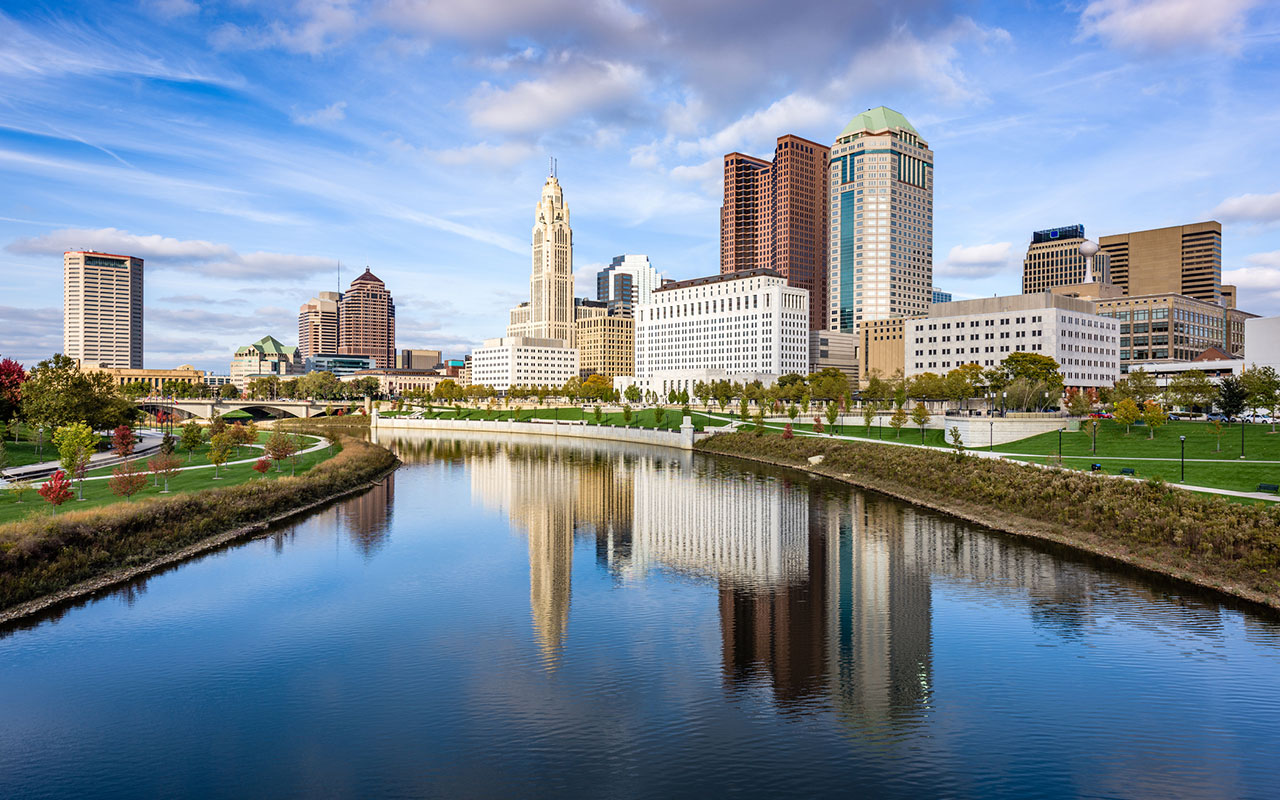
Ohio
- State income tax: 1.98% (on income over $10,850 of taxable income) — 4.997% (on taxable income over $217,4000)
- Average property tax: $1,641 in taxes per $100,000 of assessed home value
- Average state and local sales tax: 7.15%
- Gas taxes and fees: $0.3851 cents per gallon
The tax situation in Ohio is deceiving. While none of the major state and local taxes in the Buckeye State are sky high, they’re all above average. Ohio’s income tax is like Pennsylvania’s—the state rates themselves aren’t particularly scary, but the overall rate ends up being higher-than-average when you add in local taxes. Most cities and towns in Ohio impose their own income tax, and their tax rates are as high as 3%. As a result, the combined state and local income tax burden in the state is above the national average.
Housing costs in Ohio are relatively low, but the state’s average property tax bill isn’t. For a $400,000 home in the state, the owner can expect to pay about $6,564 each year in property taxes. That’s above the U.S. average for a home at that price. Finally, the average combined state and local sales tax in Ohio is 7.17%. You guessed it … that’s above the national average.
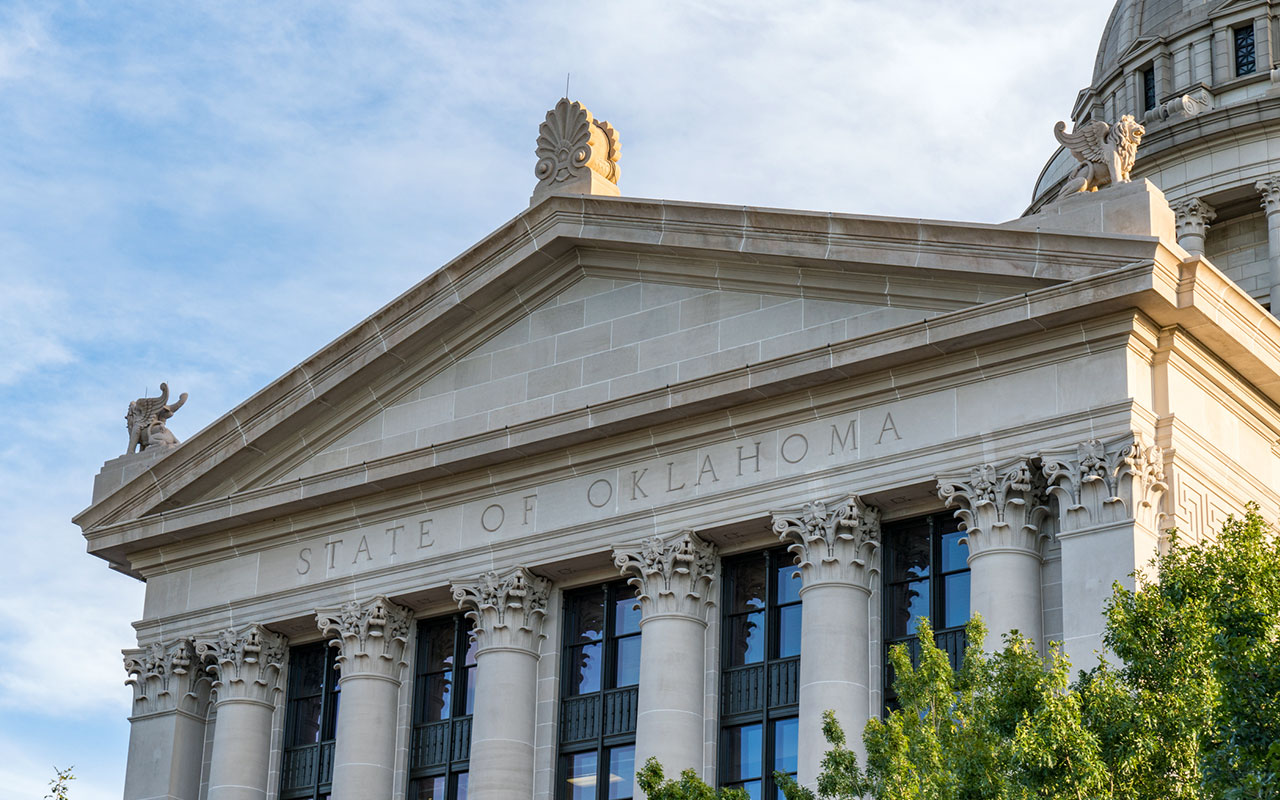
Oklahoma
- Our ranking: Not tax-friendly
- State income tax: 0.5% (on up to $1,000 of taxable income for single filers and up to $2,000 for married joint filers) — 5% (on taxable income over $7,200 for single filers and over $12,200 for married joint filers)
- Average property tax: $974 in taxes per $100,000 of assessed home value
- Average state and local sales tax: 8.94%
- Gas taxes and fees: $0.2000 per gallon
On the minus side: An income tax schedule that will put many people in the highest bracket (5%) and the sixth-highest combined sales tax rate in the nation, at an average of 8.93%, with some cities in double digits. On the plus side: modest property taxes.

Oregon
- Our ranking: Not tax-friendly
- State income tax: 5% (on up to $3,450 of taxable income for single filers and up to $6,900 for married couples filing jointly) — 9.9% (on taxable income over $125,000 for single filers and over $250,000 for married couples filing jointly)
- Average property tax: $1,121 in taxes per $100,000 of assessed home value
- Average state and local sales tax: None
- Gas taxes and fees: $0.3682 per gallon
The Beaver State has high income taxes: 9.9% is applied to taxable income over $125,000 ($250,000 for married couples filing jointly) — and the lowest bracket is already 5%. Local income taxes may be due as well; the average local levy is 0.36%, according to the Tax Foundation. Property taxes are on the high side, too. Oregon’s absence of a sales tax (and the country’s lowest wireless tax) can’t make up for that.

Pennsylvania
- Our ranking: Least tax-friendly
- State income tax: Flat 3.07%
- Average property tax: $1,674 in taxes per $100,000 of assessed home value
- Average state and local sales tax: 6.34%
- Gas taxes and fees: $0.5870 per gallon
With a 3.07% flat income tax rate, the Keystone State looks like it could be a low-tax state at first glance. However, most cities and towns in Pennsylvania tack on their own local income tax (school districts, too). Philadelphia hits taxpayers the hardest with a 3.87102% tax on residents and a 3.4481% tax on nonresidents. Property taxes are above average in Pennsylvania, too. On a $400,000 home in the state, the taxes are an average $6,698 each year.
Pennsylvania also has the second-highest state gas tax in the nation at 58.7 cents per gallon, and the sixth-highest state and local wireless service taxes (16.27% combined). An inheritance tax adds to the state’s overall tax burden.

Rhode Island
- Our ranking: Not tax-friendly
- State income tax: 3.75% (on up to $62,250 of taxable income) — 5.99% (on taxable income over $149,150)
- Average property tax: $1,723 in taxes per $100,000 of assessed home value
- State sales tax: 7%
- Gas taxes and fees: $0.3500 per gallon
Rhode Island is expensive for homeowners. The property tax on the state’s median home value of $238,200 is $3,929 the 10th-highest in the U.S. The Ocean State's sales taxes lean high (and are above its neighboring states), but the income tax bite is modest.

South Carolina
- Our ranking: Mixed tax picture
- State income tax: 3% (on taxable income over $2,970) — 7% (on taxable income over $14,860)
- Average property tax: $601 in taxes per $100,000 of assessed home value
- Average state and local sales tax: 7.46%
- Gas taxes and fees: $0.2275 per gallon
The Palmetto State boasts low property taxes — the fourth-lowest in the country. Many taxpayers will find themselves in the highest income bracket, however> The 7% top rate kicks in at just $14,600 of taxable income, and the sales tax (an average of 7.46%, per the Tax Foundation) leans high as well.
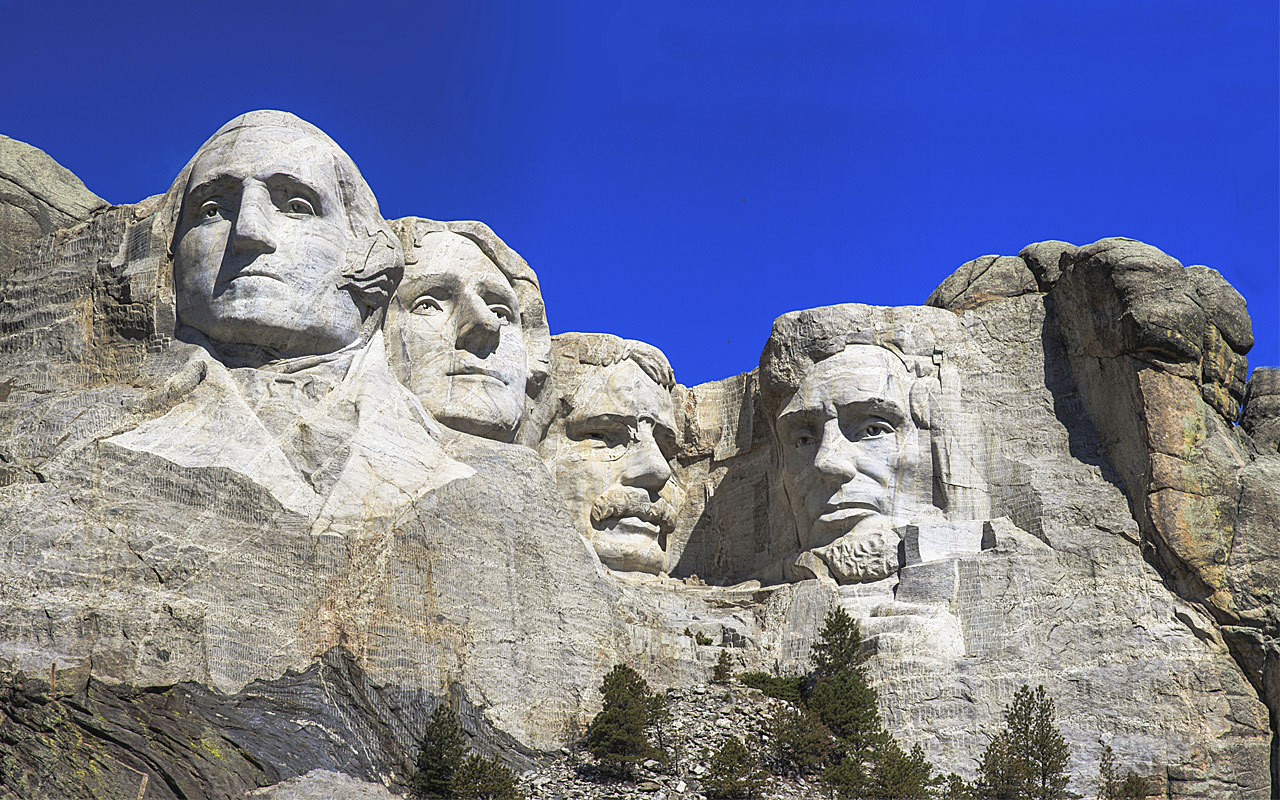
South Dakota
- Our ranking: Most tax-friendly
- State income tax: None
- Average property tax: $1,388 in taxes per $100,000 of assessed home value
- Average state and local sales tax: 6.4%
- Gas taxes and fees: $0.3000 per gallon
Sure, it’s cold in the winter. But low taxes will offset some of the cost of staying warm. South Dakota has no income tax, and combined state and local sales taxes are below average for the U.S. — though they are levied on groceries. The Mount Rushmore State is one of The Mount Rushmore State is one of Kiplinger’s top ten most tax-friendly states.

Tennessee
- Our ranking: Tax-friendly
- State income tax: None
- Average property tax: $768 in taxes per $100,000 of assessed home value
- Average state and local sales tax: 9.47%
- Gas taxes and fees: 26 cents per gallon
There’s no broad-based income tax in the Volunteer State—only interest and dividends are subject to Tennessee’s limited income tax. The first $1,250 in taxable income for individuals ($2,500 for joint filers) is also exempt from the 2% (for 2019) tax, and it’s waived if you’re at least 100 years old. Plus, the tax is being phased out at a rate of 1% per year. So, it will be completely eliminated by 2021.
Tennessee sticks it to you when you’re shopping, though. At 9.47%, its average combined state and local sales tax rate is tied for the highest in the nation, according to the Tax Foundation. Tennessee also has the highest beer tax in the country—$1.29 per gallon.

Texas
- Our ranking: Tax-friendly
- State income tax: None
- Average property tax: $1,993 in taxes per $100,000 of assessed home value
- Average state and local sales tax: 8.19%
- Gas taxes and fees: $0.2000 per gallon
The Lone Star State is a place of extremes. There’s no income tax at all. On the other hand, sales taxes run high, as do property taxes. As befits a place that pumps a lot of oil out of the ground, fuel taxes are low.

Utah
- Our ranking: Mixed tax picture
- State income tax: Flat 4.95%
- Average state and local sales tax: 6.78%
- Gas taxes and fees: 29 cents per gallon
Utah, which runs a flat tax system, lowered the rate by a hair (from 5.0% to 4.95%) in 2018. However, the loss of the federal personal exemption due to the new tax law means that many Utahns, particularly those with multiple dependents, will pay higher state taxes than before.
Property taxes are low and sales taxes average. A strong score on fiscal stability indicates the Beehive State is likely to be able to keep things average.

Vermont
- Our ranking: Not tax-friendly
- State income tax: 3.35% (on up to $38,700 of taxable income for singles and up to $64,600 for joint filers) — 8.75% (on taxable income over for $195,450 for singles and up to $237,950 for joint filers)
- Average property tax: $1,908 in taxes per $100,000 of assessed home value
- Average state and local sales tax: 6.22%
- Gas taxes and fees: $0.3094 per gallon
Just across the Connecticut River from low-tax New Hampshire, Vermont is a different place altogether, with income tax rates that reach 8.75%.
While sales taxes in the Green Mountain are modest, it’s an expensive place to own a home (as well as heat it). What’s more, changes the state made to its tax structure in the wake of the new federal tax law mean that all filers will now have to take Vermont’s standard deduction. If you have a big mortgage, for example, that might well work against you.
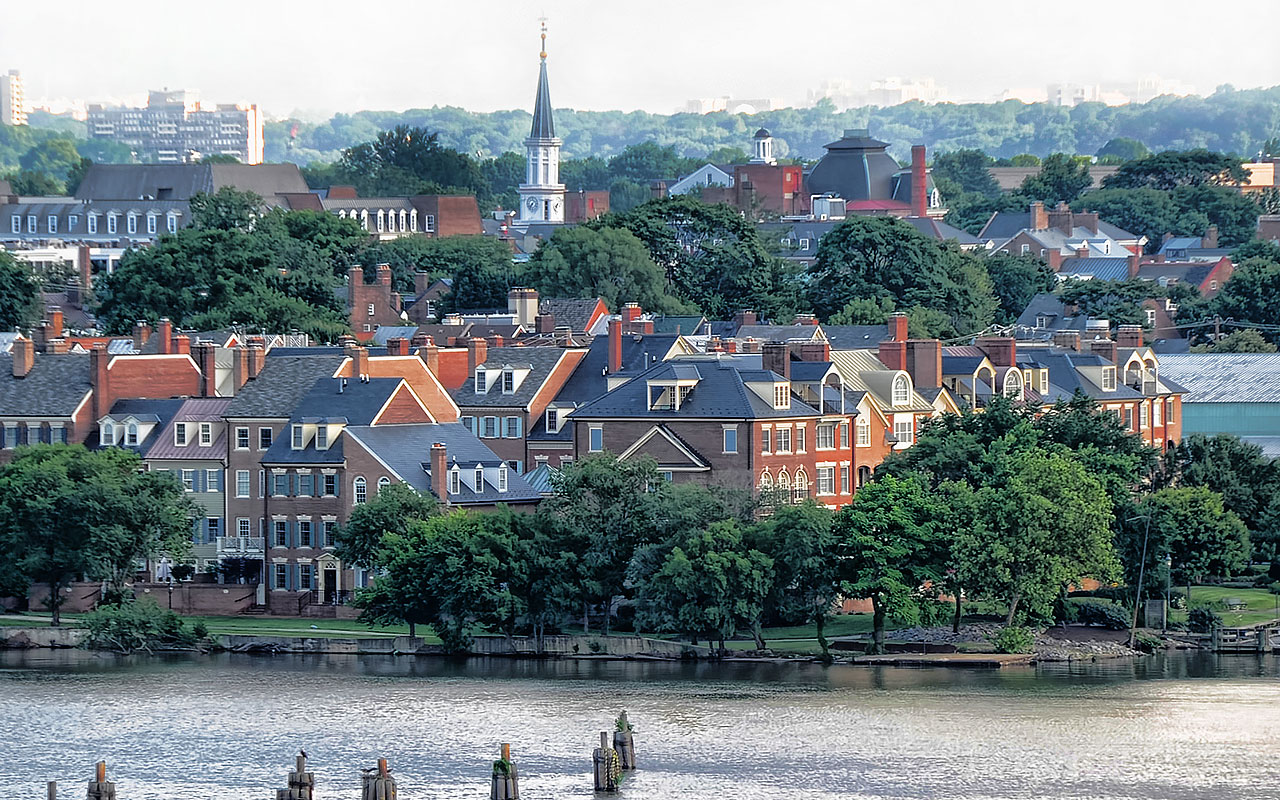
Virginia
- Our ranking: Mixed tax picture
- State income tax: 2% (on up to $3,000 of taxable income) — 5.75% (on taxable income over $17,000)
- Average property tax: $858 in taxes per $100,000 of assessed home value
- Average state and local sales tax: 5.65%
- Gas taxes and fees: $0.2100 per gallon
The Old Dominion has middle-of-the-road income taxes and relatively low property taxes. Note that while the sales tax is low, groceries are taxed, albeit at an even lower rate.

Washington
- Our ranking: Tax-friendly
- State income tax: None
- Average property tax: $1,125 in taxes per $100,000 of assessed home value
- Average state and local sales tax: 9.21%
- Gas taxes and fees: $0.4940 per gallon
Washington is one of our most tax-friendly states because it doesn’t have an income tax. Unfortunately, the burden of other state and local taxes in the Evergreen State is heavier. The Tax Foundation’s average combined state and local sales tax rate for Washington is the fourth-highest in the country, as is its gas tax. Washington is also one of a handful of states with an estate tax.

West Virginia
- Our ranking: Mixed tax picture
- State income tax: 3% (on up to $10,000 of taxable income) — 6.5% (on taxable income of $60,000 or more)
- Average property tax: $615 in taxes per $100,000 of assessed home value
- Average state and local sales tax: 6.40%
- Gas taxes and fees: $0.3570 per gallon
The Mountain State’s median real estate taxes are among the lowest in the U.S. Sales taxes are also reasonable, but income tax bites hard on higher incomes, with the top rate of 6.5% kicking in on taxable income over $60,000. Like many western states, West Virginia benefits from natural resources like gas and coal, and collects significant severance taxes from them.

Wisconsin
- Our ranking: Least tax-friendly
- State income tax: 4.0% (on up to $11,450 of taxable income for singles or up to $15,270 for married couples) — 7.65% (on taxable income over $252,150 for singles or over $336,200 for married couples)
- Average property tax: $615 in taxes per $100,000 of assessed home value
- Average state and local sales tax: 5.44%
- Gas taxes and fees: $0.3290 per gallon
Wisconsin combines high income and property taxes to join our list of the top ten least tax-friendly states. Many residents of the Badger State will find themselves in the 6.27% bracket, which kicks in on income above only $22,900 for singles and $30,540 for joint filers (2018 brackets). And we estimate that property taxes for a $400,000 home in the state would run about $7,695 per year. On the plus side, sales taxes run low.
Wisconsin’s beer tax is tied for the second-lowest in the country. So at least Cheeseheads can have a cold one with their brat without having to pay too much tax.
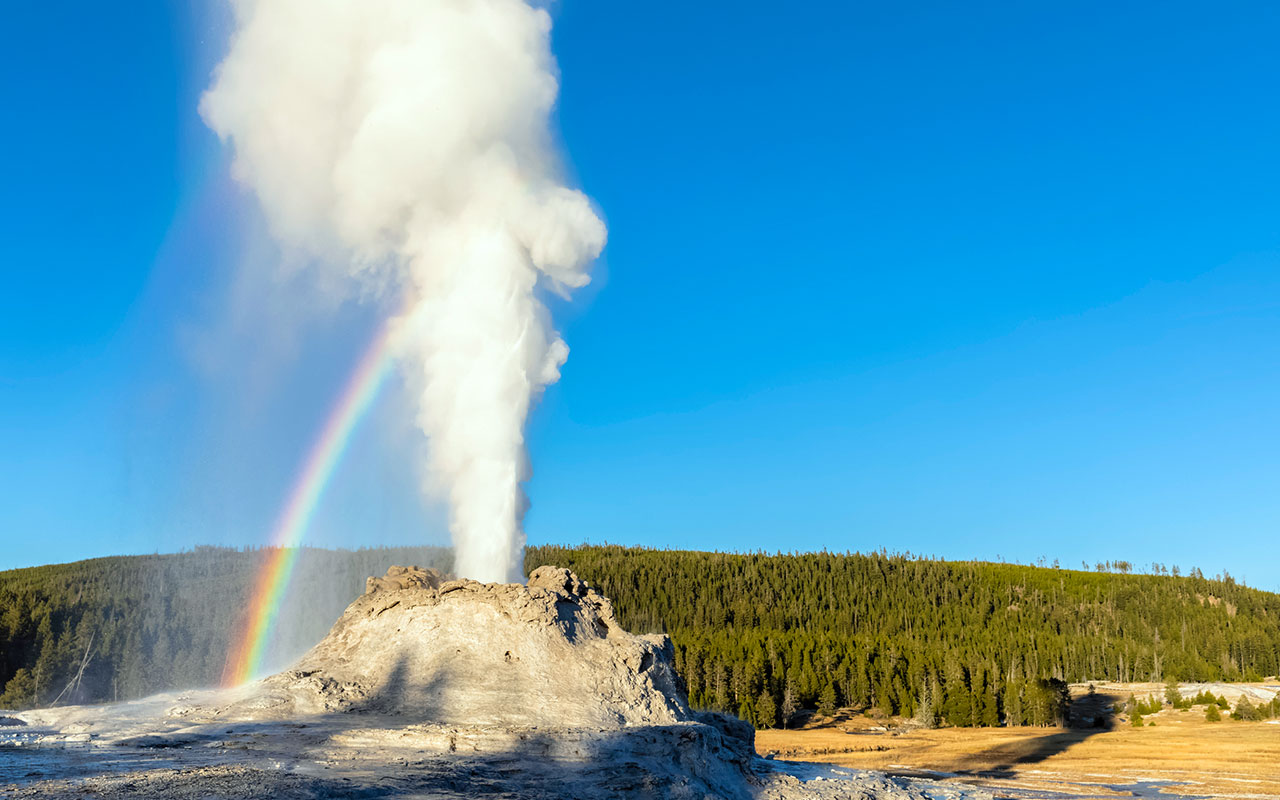
Wyoming
- Our ranking: Most tax-friendly
- State income tax: None
- Average property tax: $635 in taxes per $100,000 of assessed home value
- Average state and local sales tax: 5.32%
- Gas taxes and fees: $0.2400 per gallon
Thanks in large part to abundant revenues that the state collects from oil and mineral rights, Wyoming residents shoulder one of the lowest tax burdens in the U.S. With no income tax, it’s number one on the list of Kiplinger's Most Tax-Friendly States. Residents of the Equality State can also raise their glasses to the lowest beer tax in the country.

About Our Methodology
Our maps and other tax content include data and state tax-policy details from a wide range of sources. To create our rankings, we created a metric to compare the tax burden in all 50 states and the District of Columbia.
Income Taxes
We looked at each state’s tax agency, plus this helpful document from the Tax Foundation. Rates and brackets are for the 2018 tax year unless otherwise noted.
Property Tax
Median income tax paid and median home values come from the U.S. Census American Community Survey and are 2017 data.
Sales Taxes
We also cite the Tax Foundation’s figure for average sales tax, which is a population-weighted average of local sales taxes. In states that let municipalities add sales taxes, this gives an estimate of what most people in a given state actually pay, as those rates can vary widely.
Fuel Tax
The American Petroleum Institute prepares a quarterly update of state rates. We used October 2019 data. Values include both excise taxes, sales taxes (when applicable) and a variety of fees that states impose.
Sin Taxes
- Cigarette & tobacco taxes: Individual state tax web sites and the Coalition for Tobacco-Free Kids.
- Vapor products: The Tax Foundation.
- Alcohol Taxes: The Tax Foundation (beer, wine, spirits).
Wireless Taxes
Ranking method
The “tax-friendliness” of a state depends on the sum of income, sales and property tax paid by our sample filers.
To determine income tax, we prepared returns for a married couple with two dependent children, an earned income of $150,000, and qualified dividends of $10,000. They paid $10,000 in mortgage interest. Since some states have local income taxes, we domiciled our filers in each state’s capital, from Juneau to Cheyenne. We calculated these 2018 returns using software from Credit Karma.
How much the sample filers paid (and deducted on their income tax return) in property taxes was calculated assuming a residence with $400,000 assessed value and each state’s average tax rate.
How much they paid in sales taxes was calculated using the IRS’ Sales Tax Calculator, which is localized to zip code. To determine those, we used Zillow to determine zip codes with housing inventory close to our sample assessed value.
Fiscal Stability
Each state’s balance sheet gives an indication of what its tax future might look like. We drew on the study Ranking the States by Fiscal Condition by the Mercatus Center at George Mason University.
Profit and prosper with the best of Kiplinger's advice on investing, taxes, retirement, personal finance and much more. Delivered daily. Enter your email in the box and click Sign Me Up.
Rocky Mengle was a Senior Tax Editor for Kiplinger from October 2018 to January 2023 with more than 20 years of experience covering federal and state tax developments. Before coming to Kiplinger, Rocky worked for Wolters Kluwer Tax & Accounting, and Kleinrock Publishing, where he provided breaking news and guidance for CPAs, tax attorneys, and other tax professionals. He has also been quoted as an expert by USA Today, Forbes, U.S. News & World Report, Reuters, Accounting Today, and other media outlets. Rocky holds a law degree from the University of Connecticut and a B.A. in History from Salisbury University.
-
 Dow Adds 1,206 Points to Top 50,000: Stock Market Today
Dow Adds 1,206 Points to Top 50,000: Stock Market TodayThe S&P 500 and Nasdaq also had strong finishes to a volatile week, with beaten-down tech stocks outperforming.
-
 Ask the Tax Editor: Federal Income Tax Deductions
Ask the Tax Editor: Federal Income Tax DeductionsAsk the Editor In this week's Ask the Editor Q&A, Joy Taylor answers questions on federal income tax deductions
-
 States With No-Fault Car Insurance Laws (and How No-Fault Car Insurance Works)
States With No-Fault Car Insurance Laws (and How No-Fault Car Insurance Works)A breakdown of the confusing rules around no-fault car insurance in every state where it exists.
-
 States That Tax Social Security Benefits in 2026
States That Tax Social Security Benefits in 2026Retirement Tax Not all retirees who live in states that tax Social Security benefits have to pay state income taxes. Will your benefits be taxed?
-
 Ten States with the Lowest Sales Tax in 2025
Ten States with the Lowest Sales Tax in 2025Sales Tax Living in one of the lowest sales tax states doesn't always mean you'll pay less.
-
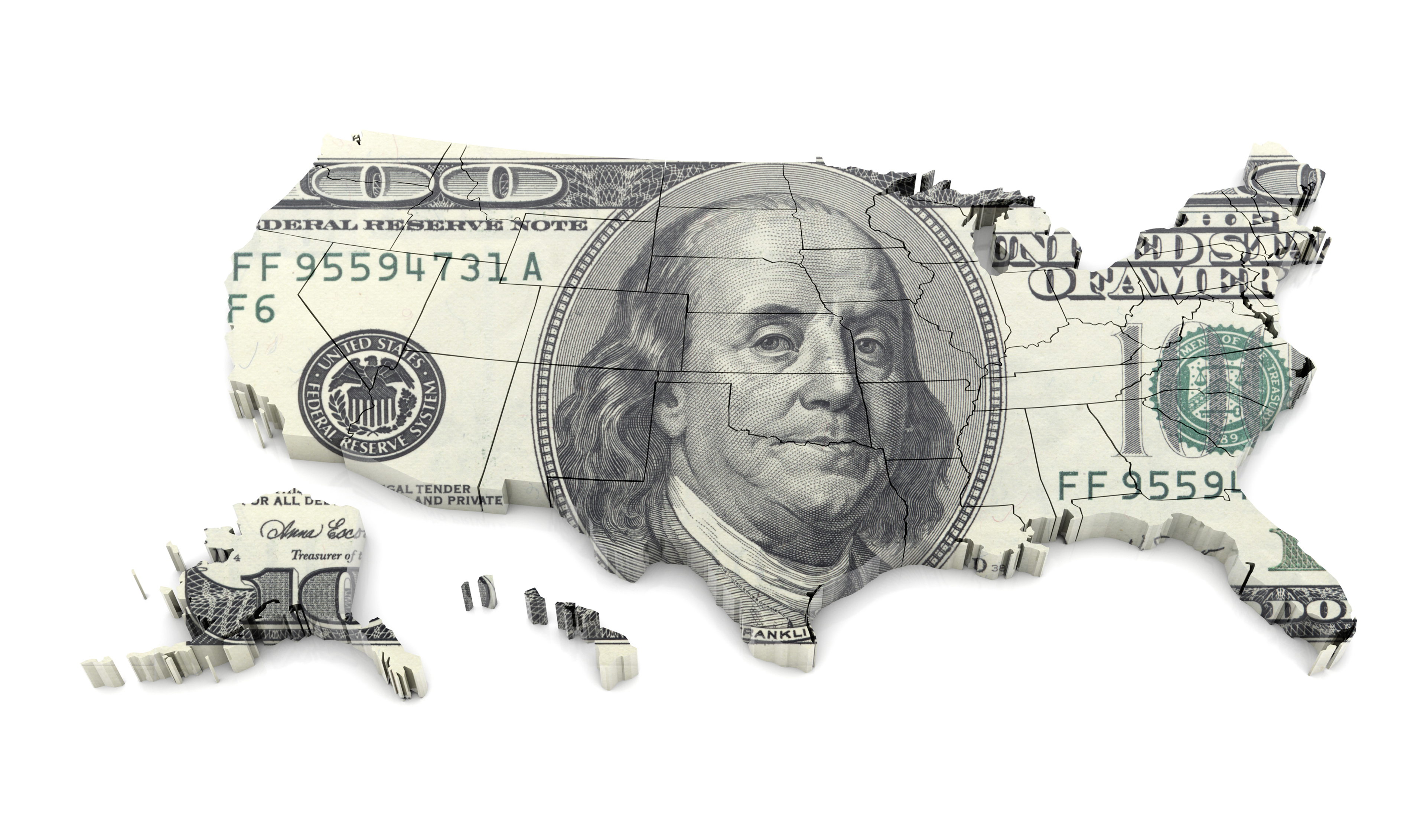 10 Least Tax-Friendly States for Middle-Class Families
10 Least Tax-Friendly States for Middle-Class FamiliesState Tax Here’s what living in one of the least tax-friendly states for middle-class families costs residents.
-
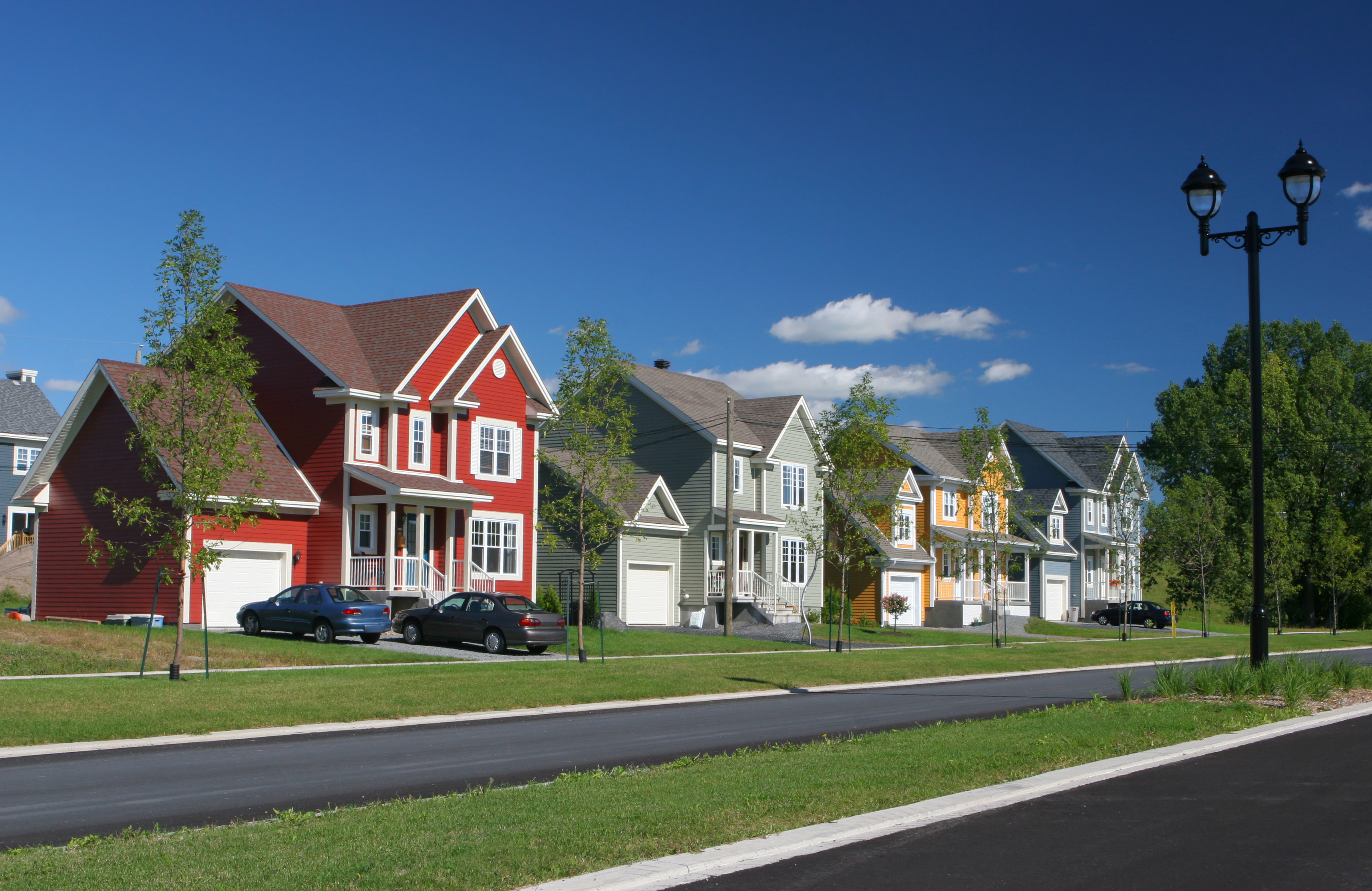 Low-Tax States for 'Middle-Class' Families in 2026
Low-Tax States for 'Middle-Class' Families in 2026State Tax Here are the best states for families with middle incomes (due to low tax burdens).
-
 15 States That Tax Military Retirement Pay (and Other States That Don't)
15 States That Tax Military Retirement Pay (and Other States That Don't)retirement Taxes on military retirement pay vary from state-to-state. How generous is your state when it comes to helping retired veterans at tax time?
-
 5 Tax Deadlines for October 17
5 Tax Deadlines for October 17tax deadline Many taxpayers know that October 17 is the due date for filing an extended tax return, but there are other tax deadlines on this date.
-
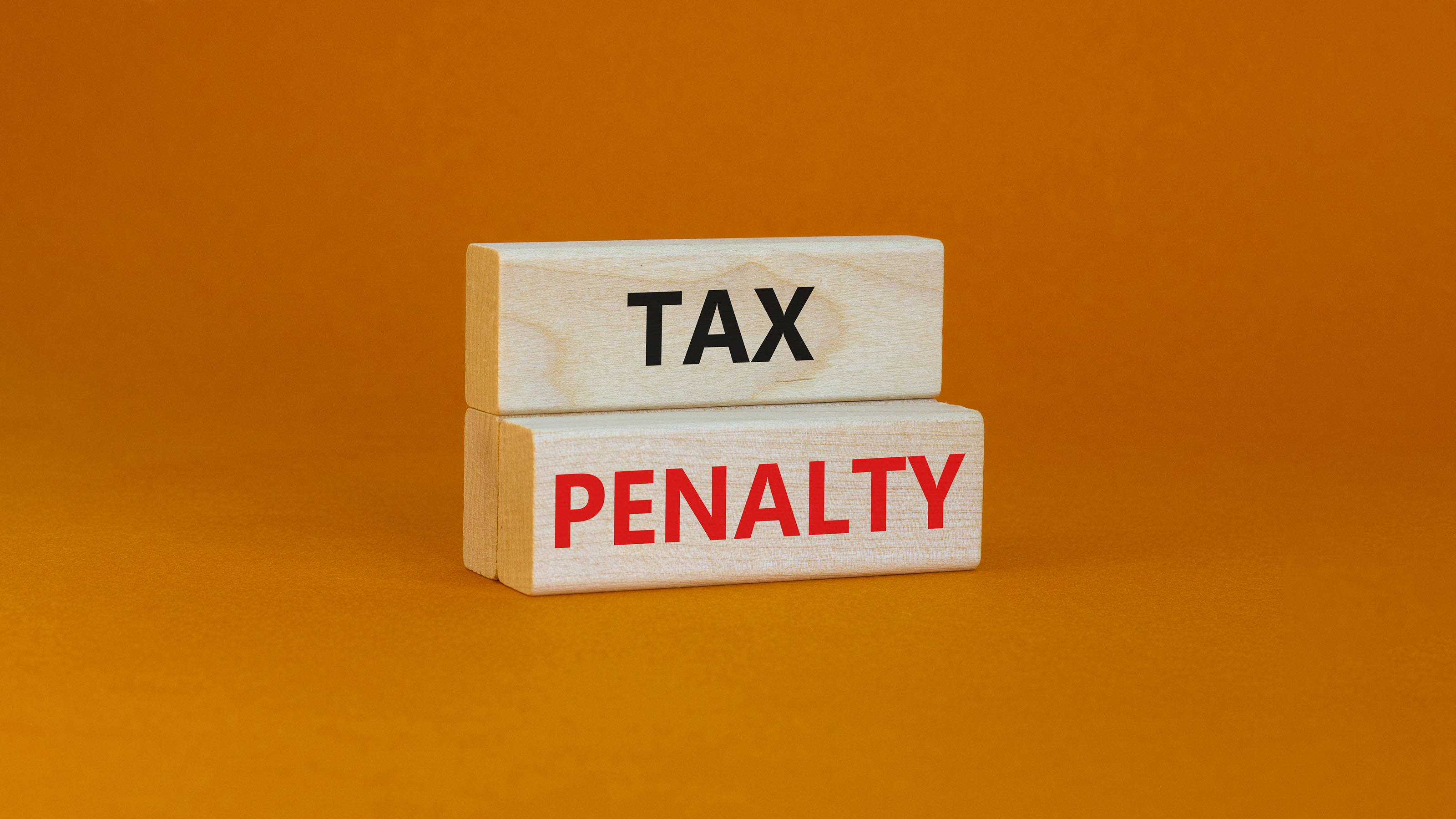 Penalties for Filing Your Tax Return Late
Penalties for Filing Your Tax Return Latetax deadline Stiff penalties await those who didn't file their return (or pay any tax owed) by the tax filing deadline.
-
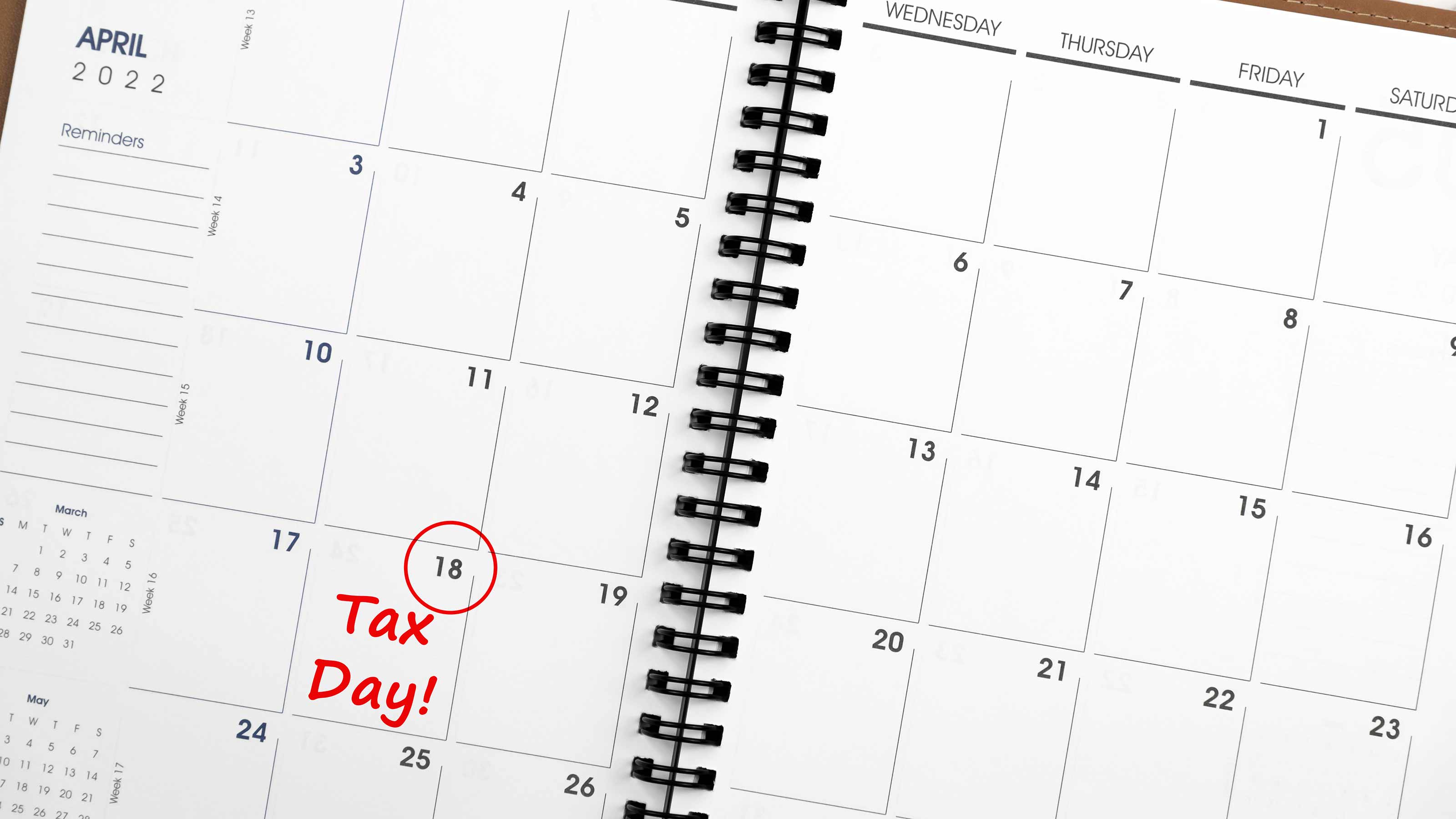 9 Tax Deadlines for April 18
9 Tax Deadlines for April 18tax deadline Between requesting a tax extension, making IRA or HSA contributions, and meeting other tax deadlines, there's more to do on Tax Day than just filing your federal income tax return.



